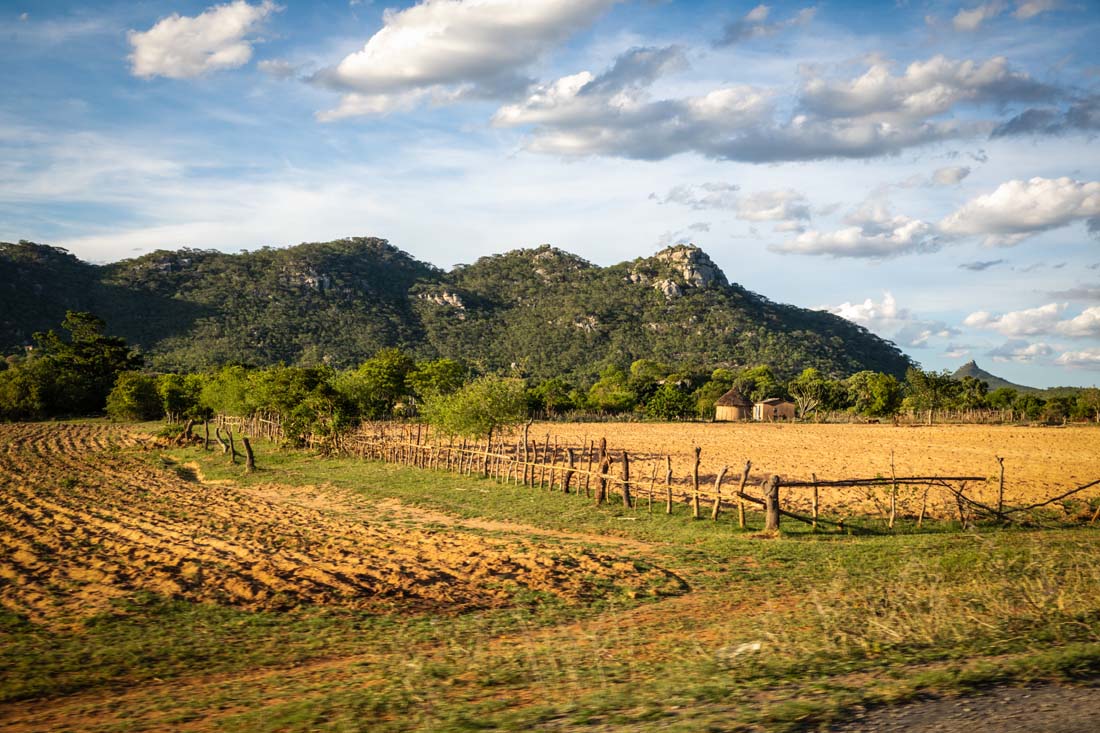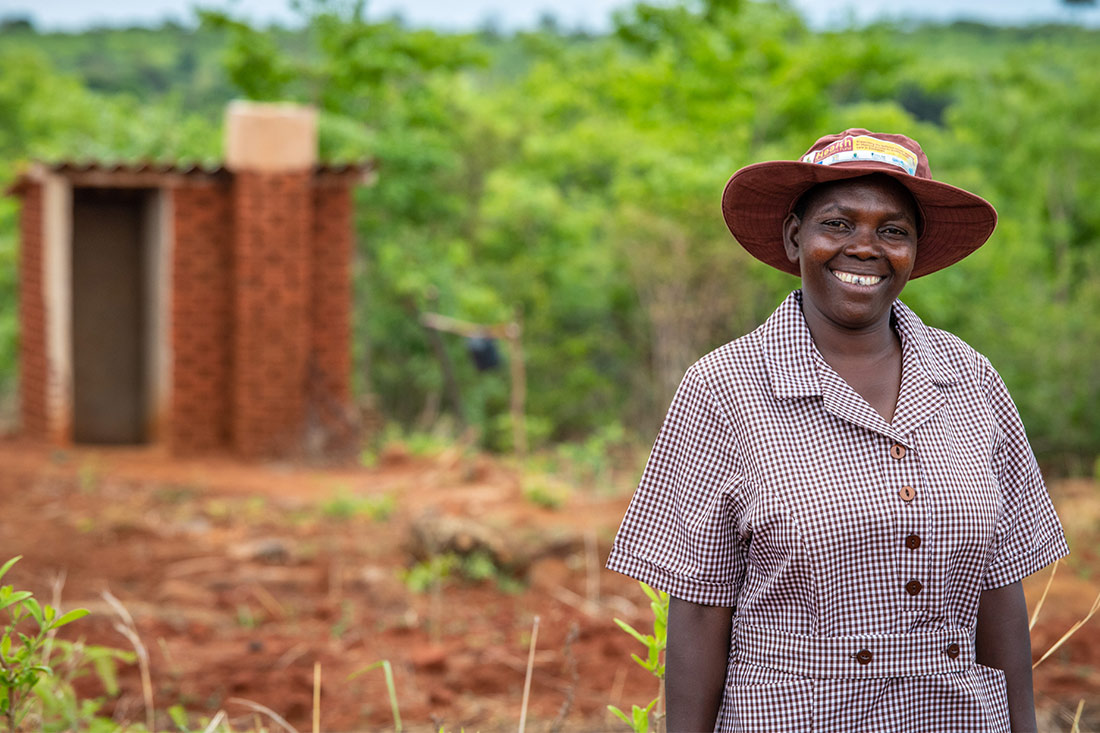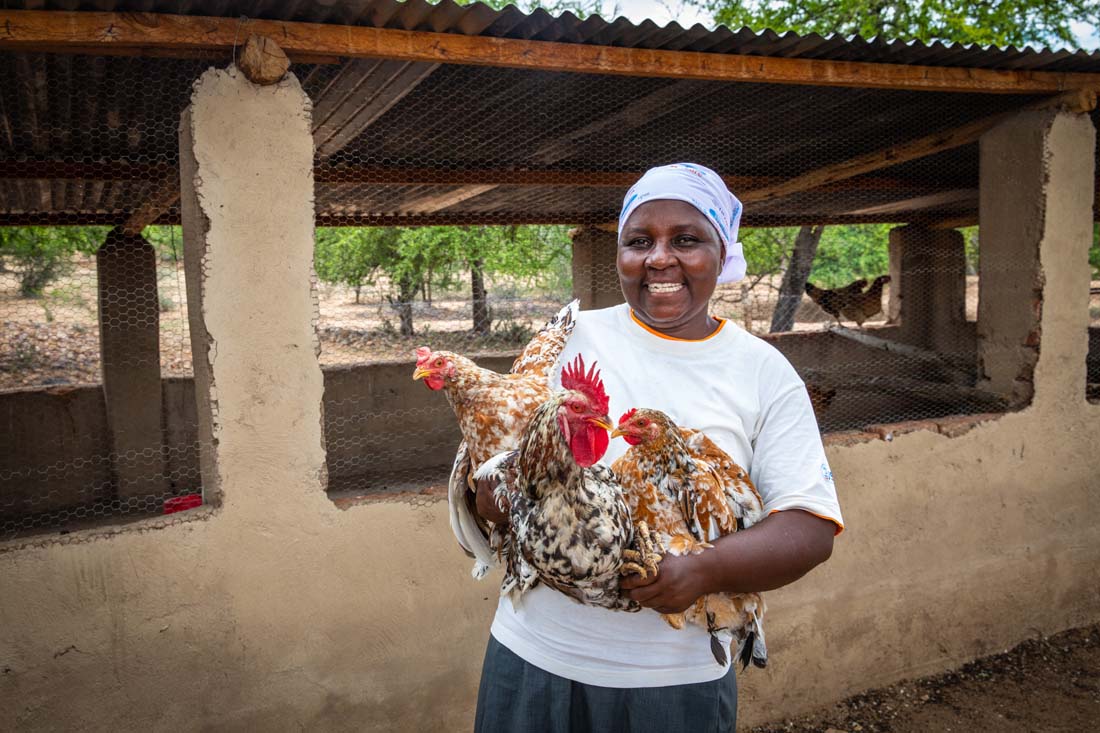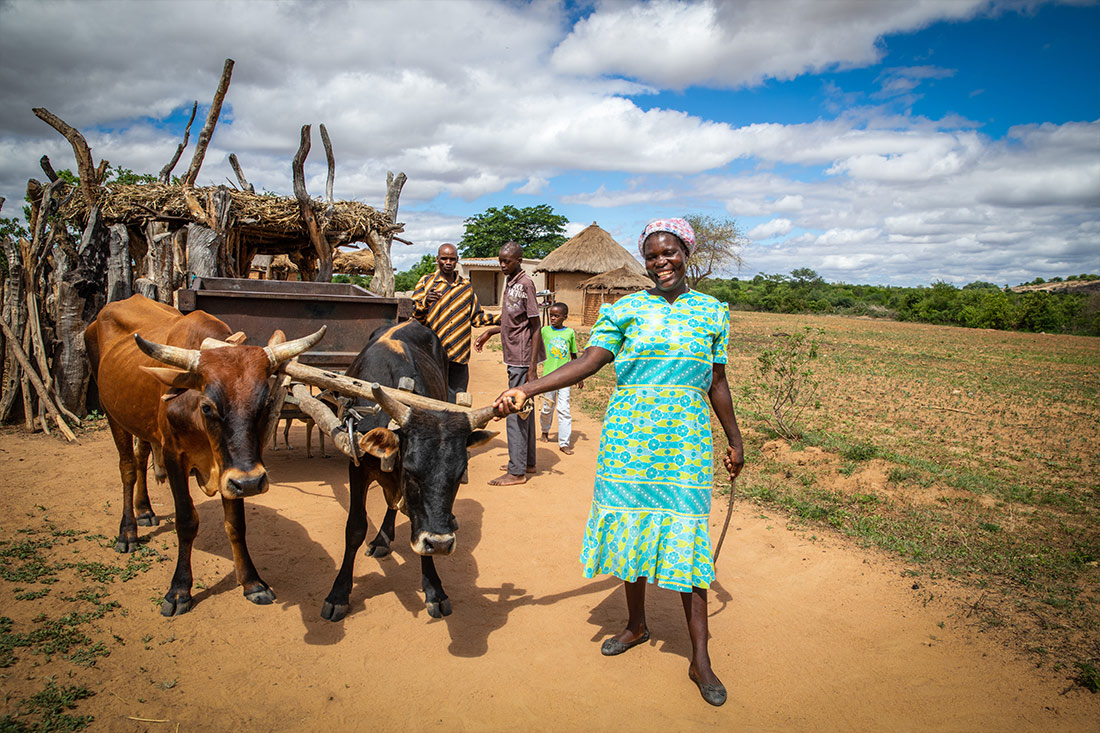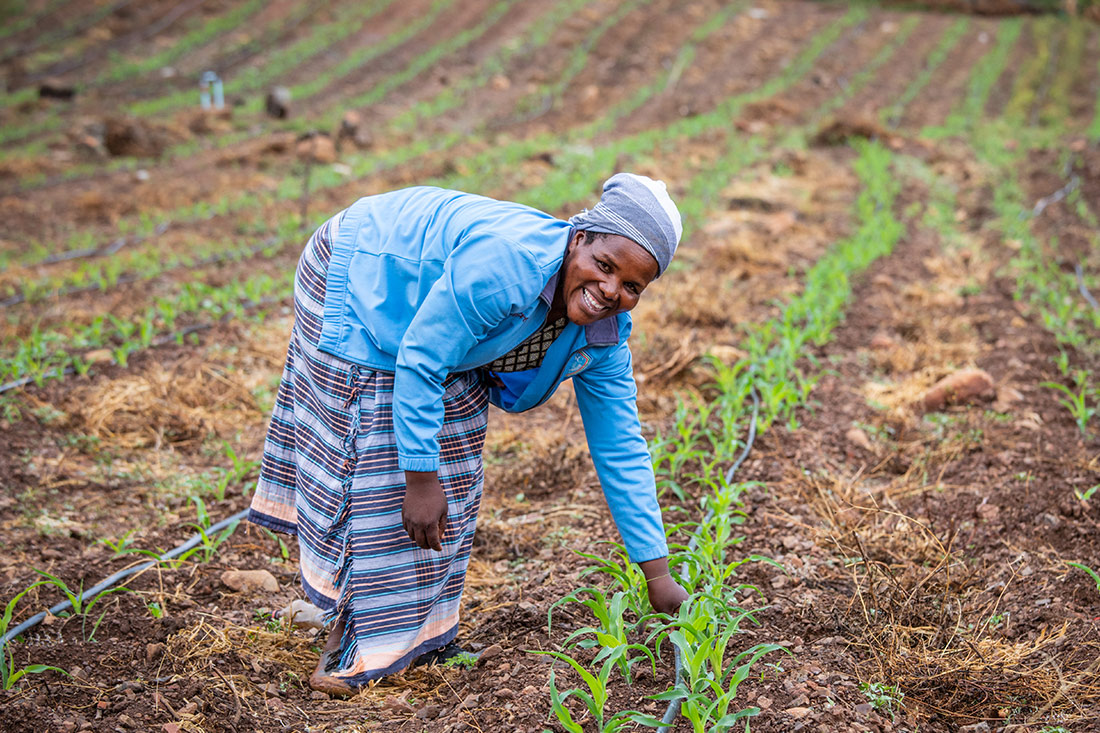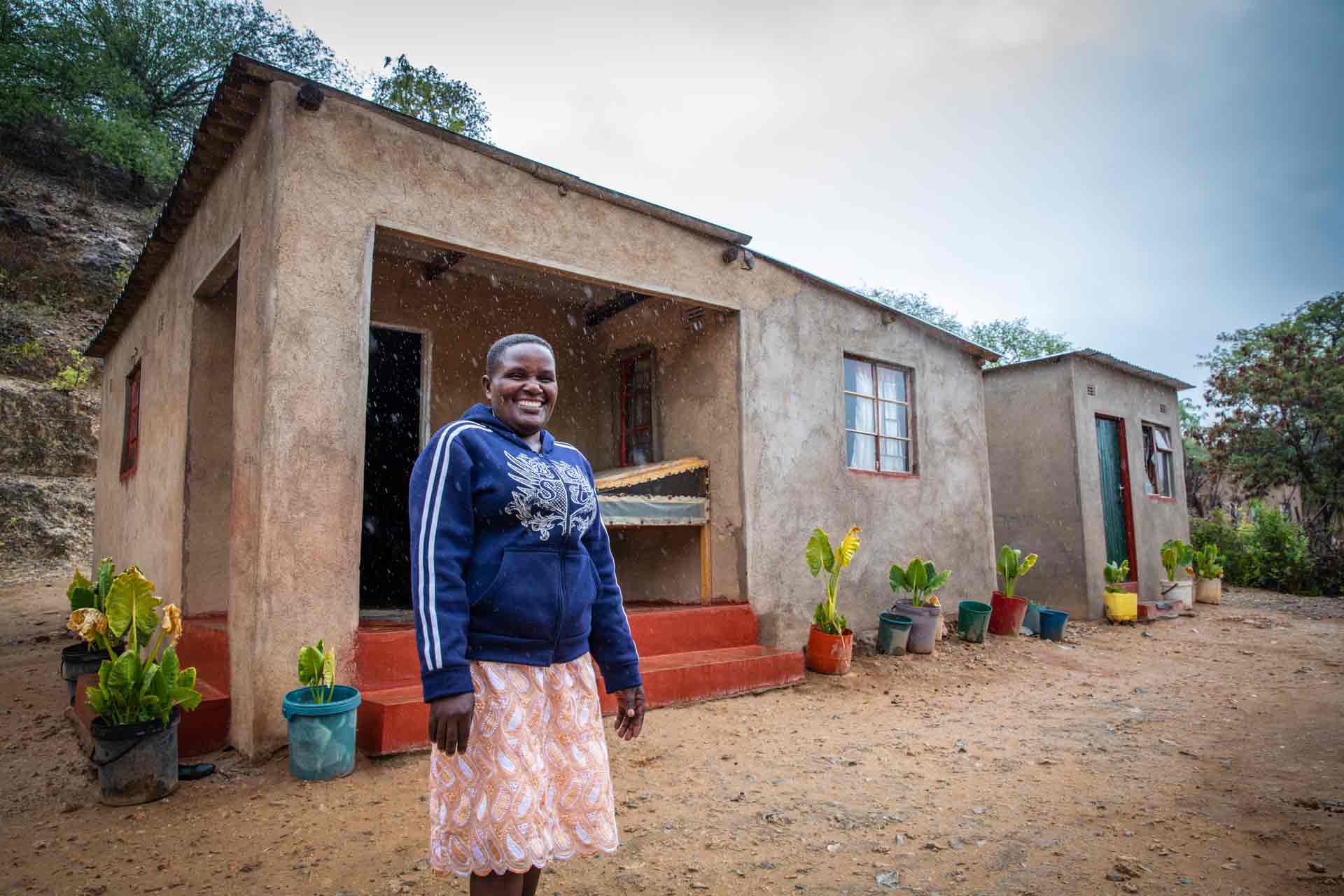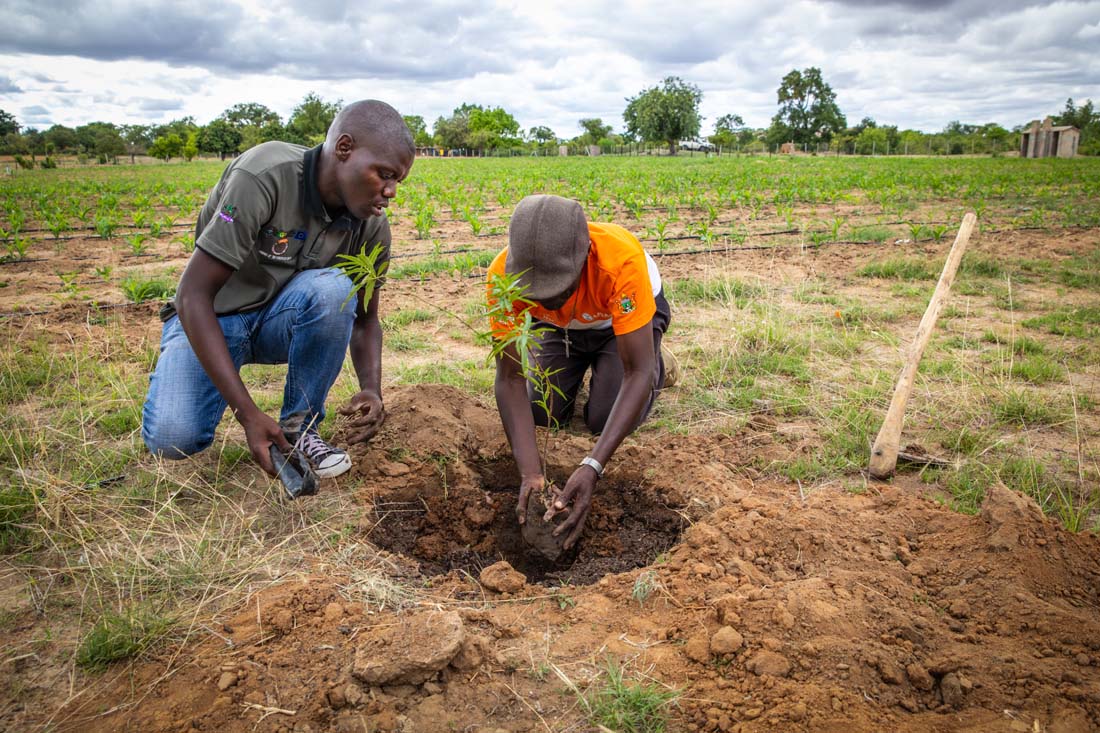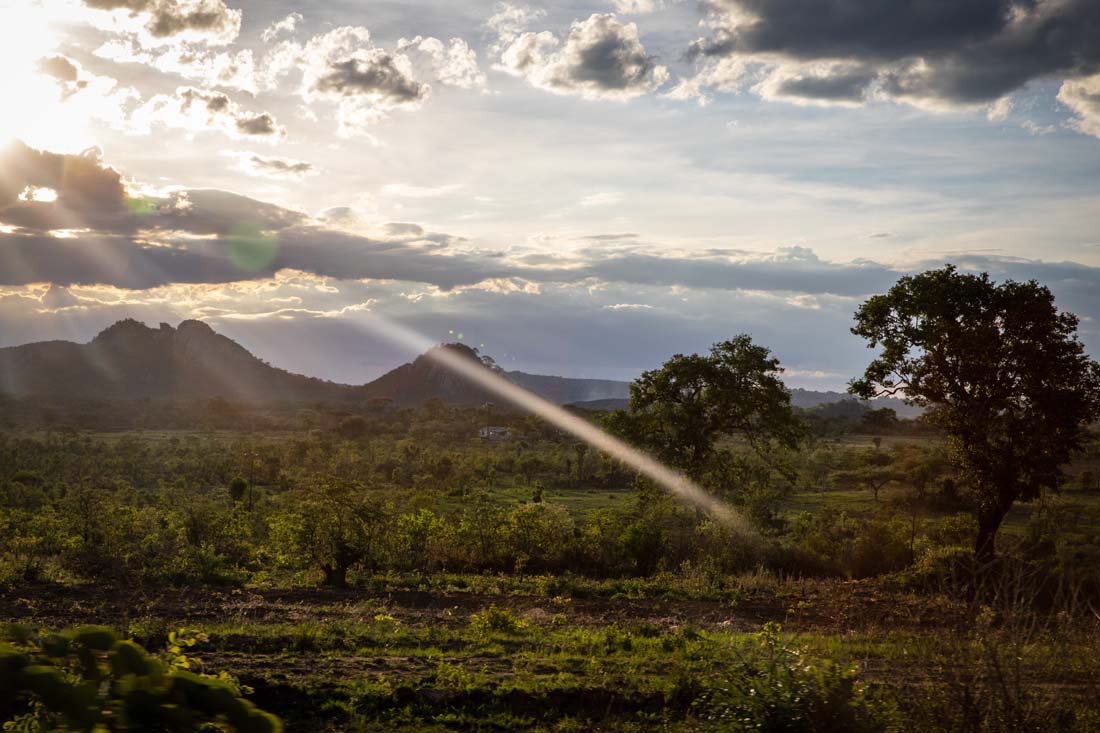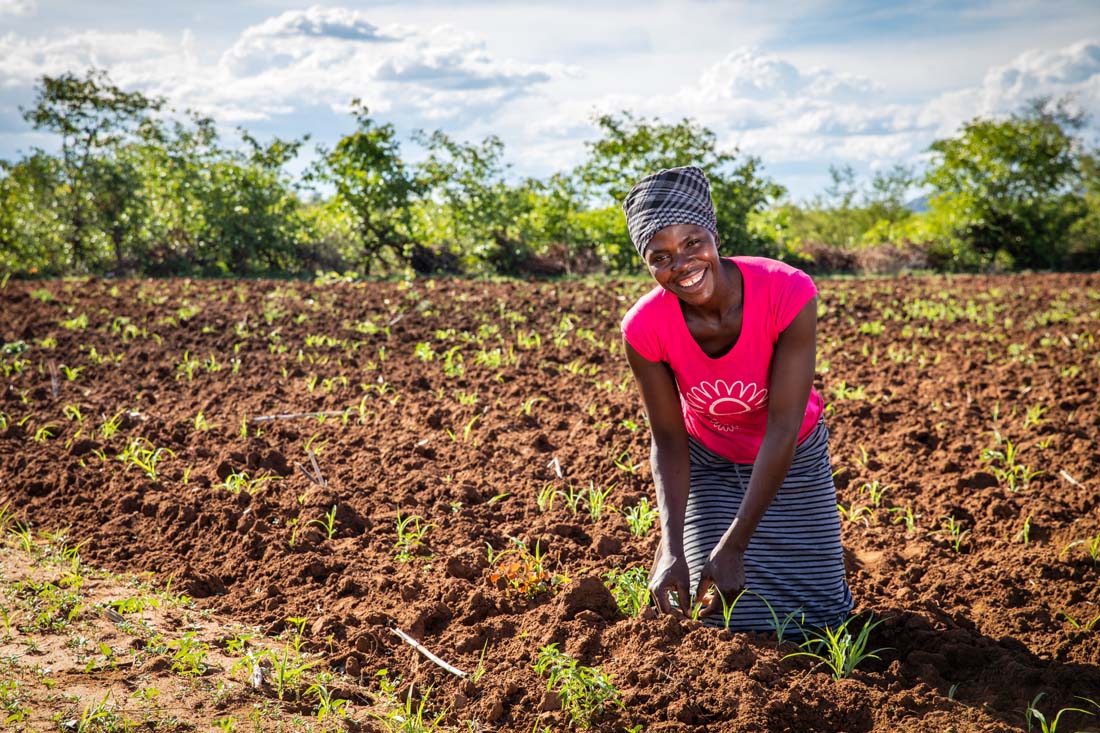
‘It has changed our lives’: Zimbabwe couple finds a market for their crops
Story by Kristy J. O’Hara-Glaspie | Photos by Chris Huber
Each year, Portia Mberikunashe and her husband, 39-year-old Richard Zinhanga, would diligently work their farm growing sorghum. They would make just US$6 for selling two bags of the grain, but there wasn’t enough demand in their community, the Buhera district in Zimbabwe’s eastern province of Manicaland, so they often couldn’t sell everything they grew.
“It was a very difficult time because nobody wants to grow things they can’t sell or are forced to sell at a very low price because it’s local and they don’t have a market,” Portia says. “It was a painful experience.
“When I don’t have a proper market, there was nothing significant I could do with that money.”
She was tired of working so hard to grow her sorghum but not having enough people to sell it to.
With so little income, she and Richard also struggled to pay school fees for their children.
“Because we didn’t have the market, we would have the sorghum in the house and would have to do casual labor to pay the school fees,” Portia says.
They would often do piecework for others in the community, and depending on the job, might get about US$30 a month. Despite their best efforts, though, the school often sent her children home for failing to pay the fees. Portia was tired of constantly searching for something to pay the bills.
About every two months, one of their four children would also get sick, which meant having to make a 12-kilometer roundtrip trek to the health clinic to get them medicine. She was tired of the cycle of illness and long journeys that never quite resulted in full health.
And Portia was tired of empty promises and false hope as different humanitarian organizations and programs would come to her community.
“Sometimes the other programs — we’re asked to register, but then nothing comes out of those programs, or we get promises and they aren’t fulfilled,” the 30-year-old says.
So when World Vision came to her community with the ENSURE program in 2014, she greeted it with skepticism and fatigue. But amid all her frustrations and broken dreams, she decided to take yet another chance and participate.
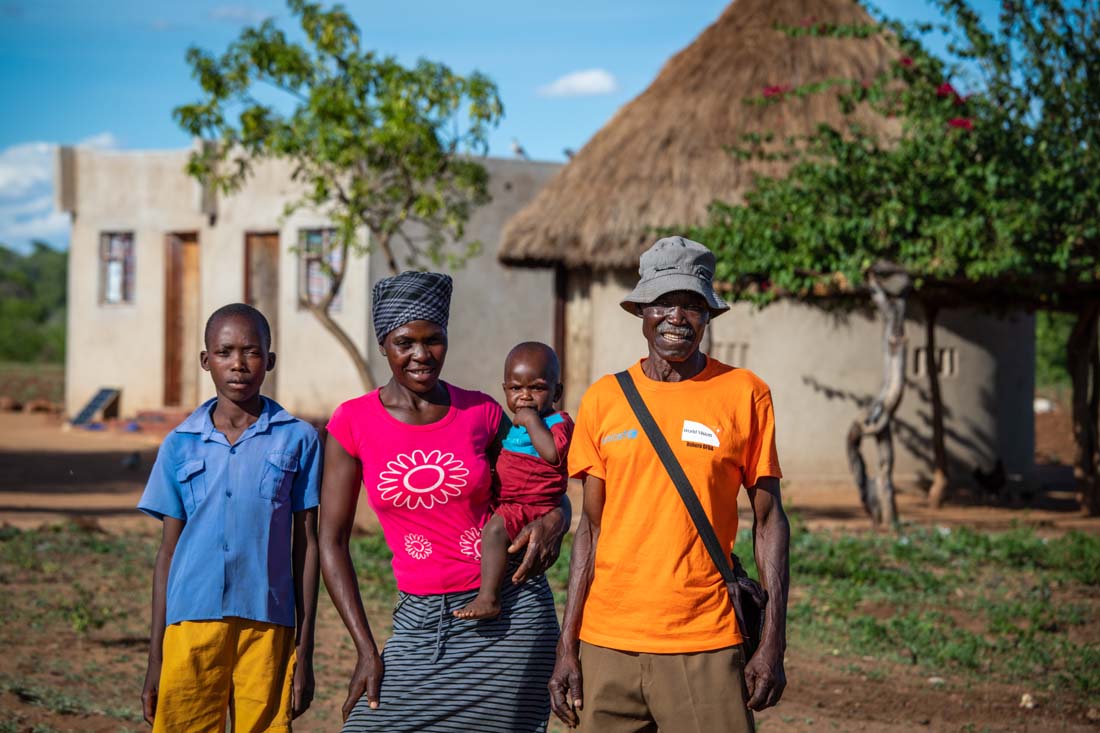
A new market
ENSURE, a USAID-funded program, aimed to improve families’ resiliency and livelihoods through nutrition and food security initiatives. ENSURE facilitators saw Portia and Richard’s plight, but they also saw that their problem was common for most of the farmers in the area. So one of the key program components was connecting farmers with markets for their products where they can get the most return for their crops.
“When we’re told ENSURE wants us to grow sorghum, and they’ll look for a market, we thought the same thing could happen — that we would grow and there would be no market,” Portia says.
Through a program called Purchase for Progress (P4P), the staff built partnerships with large organizations like the World Food Programme (WFP). They helped small-scale farmers like Portia and Richard to pool their crops with other local farmers so they could sell in large quantities to larger markets through P4P. They started with the program in 2017, and their first sale garnered 26 50-kilogram bags at about US$410 a bag.
“When you sell in bulk and get your payment all at once, you’re able to do quite a lot of things, such as paying school fees,” Portia says.
Beyond paying school fees, she also bought a wardrobe for herself with the profits. When she saw that the program really worked and wasn’t another empty promise, it overwhelmed her. She says, “I was so happy! Even up to now, I’m so happy!”
Richard is now actively part of the producer and marketing groups through ENSURE that promote farming small livestock and grain. Having a variety of projects helps ensure his family’s resiliency. Because of he and Portia’s success, he was able to build a deep well at his family’s home so they could have clean, potable water. Across all the ENSURE program areas, households with an improved source of drinking water grew from 44.2% to 52.7% during the life of the program.
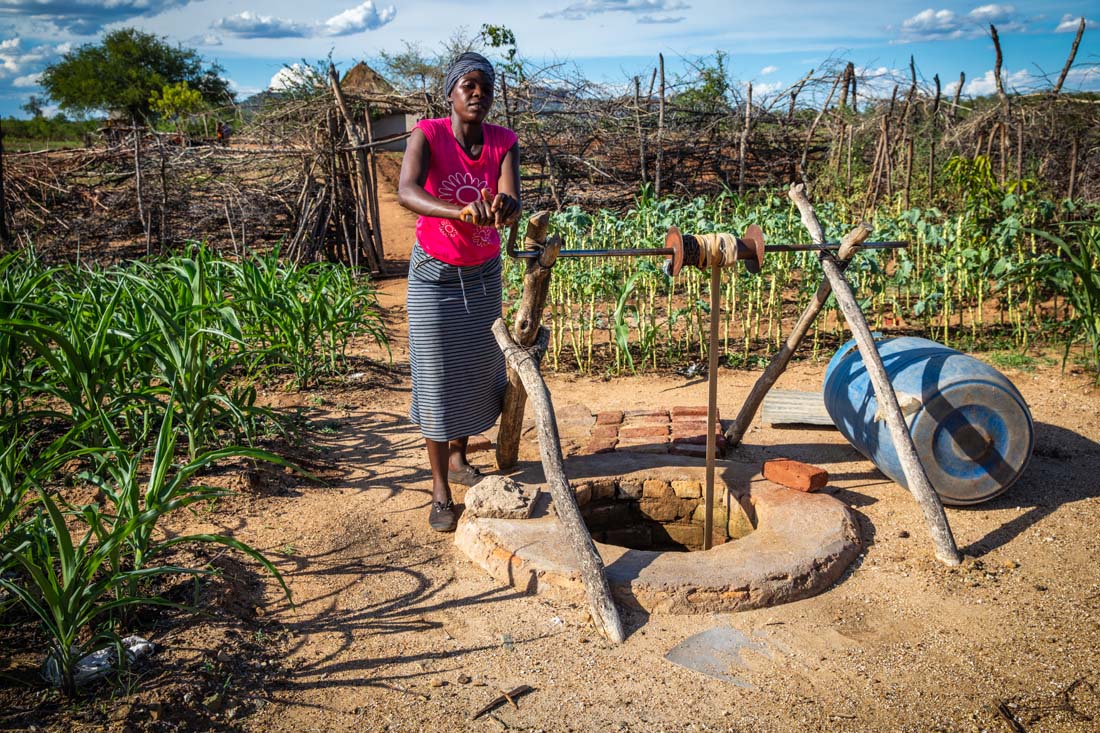
More changes
As a mother of three children already, Portia knew what she was in for when she became pregnant with her fourth. But she didn’t know that because of other ENSURE programming, things would be different with this baby. One of the program components was gender sensitivity training geared toward men. Through those trainings, men would learn about the importance of being part of their wife’s life and how shared responsibilities can ease the burden on women and create happier relationships and households.
“Before we got the gender lessons, I’d just go to the hospital and register my pregnancy myself,” she says. “They would say we should come together, but the men would not listen to that. After ENSURE, we went together.”
But Richard’s involvement didn’t end with registering Portia’s pregnancy. He took an active role in helping her.
“During the time when I was pregnant, my husband would help and go and look for firewood or fetch water,” she says. “When I wasn’t feeling well, my husband would actually cook for me!” This was a revolutionary concept in this traditionally patriarchal society.
Beyond educating men, the program also taught families how to have a healthier home through better sanitation and hygiene programs. So a month after they received this training, Richard constructed a latrine on their property with the money they had earned.
“When we used to do open defecation, our chickens would follow us and feed on our waste, and we would eat the chickens, so it was not hygienic,” Portia says. “It’s good to have a toilet so chickens don’t feed on our waste.”
They also learned about how to prevent diseases with regular handwashing and by using a tip tap, a contraption that uses a plastic bottle to tip water out so someone can wash their hands. Across all the ENSURE program communities, the number of households with hand-washing stations has improved from 2.7% to 8.7%.
The ENSURE program also worked to provide supplemental food for pregnant and lactating mothers as well as teach them how to better provide for themselves and their young children through care groups. Portia learned that she should exclusively breastfeed for the first six months before introducing solid foods. Because she was able to participate in multiple programs, when baby Confidence was born in early 2019, he had a head start in life over his three older siblings.
“There was a difference because I could tell whenever I would go for the monthly weigh-in to check on the growth of the child, this one would grow better than the other children,” she says. “This one wasn’t sickly like the other children.”
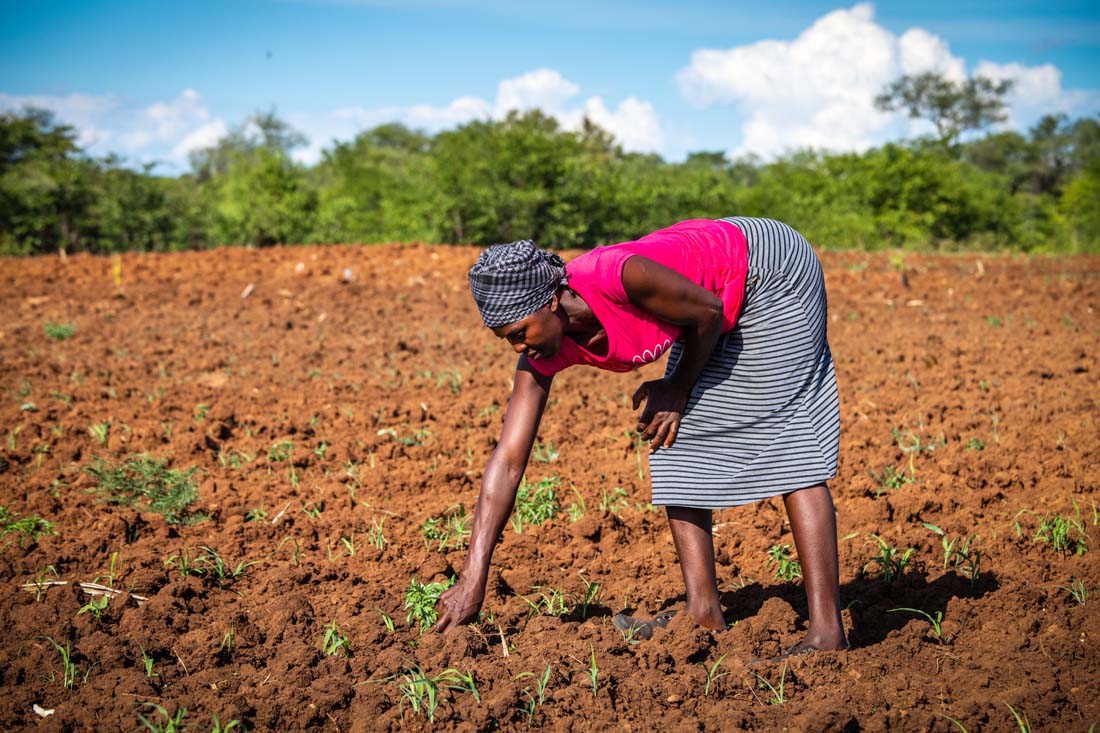
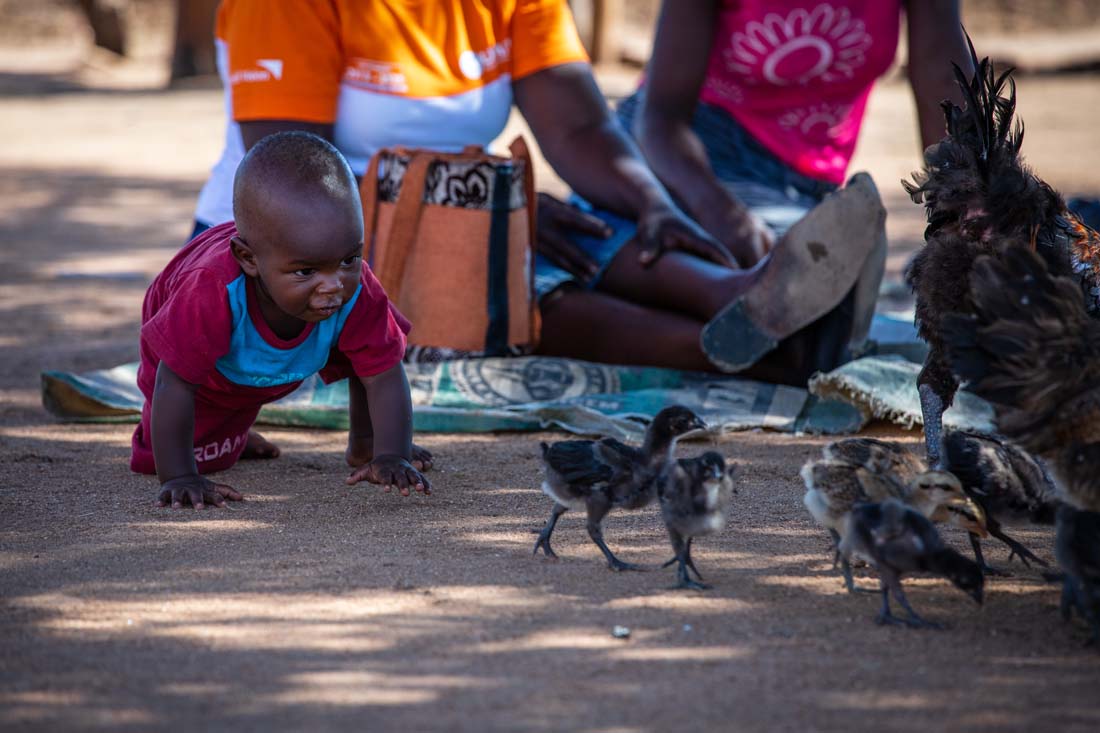
Gratitude and hope
Because their farm is a bit remote in an already vast ward within the district, Portia must walk several kilometers to do most things. For instance, the clinic is 6 kilometers away. She said the church is also quite far, and most of the meetings for the ENSURE programs she’s involved in are at the school, which is 9 kilometers from her house.
“My dream is to buy a car after selling my sorghum,” she says with a smile. Considering their sorghum was voted as the best crop in the district in 2018, that dream may become a reality.
So now they plant with a much larger goal in mind. And Portia works with peace of mind, knowing that when emergencies arise, she’s able to take them in stride. For instance, when their deep well’s walls collapsed last year, she and Richard had the money to buy cement and other supplies to repair it. Staff from ENSURE even assisted with getting the supplies to their home.
“I’d want to thank the people who brought the ENSURE program,” she says. “They’ve done us so well.
“Initially, we heard about this program, and we didn’t take it seriously. We thought it was just one of those programs, but now that we’re in it, we see it’s helpful, and it has changed our lives.”
